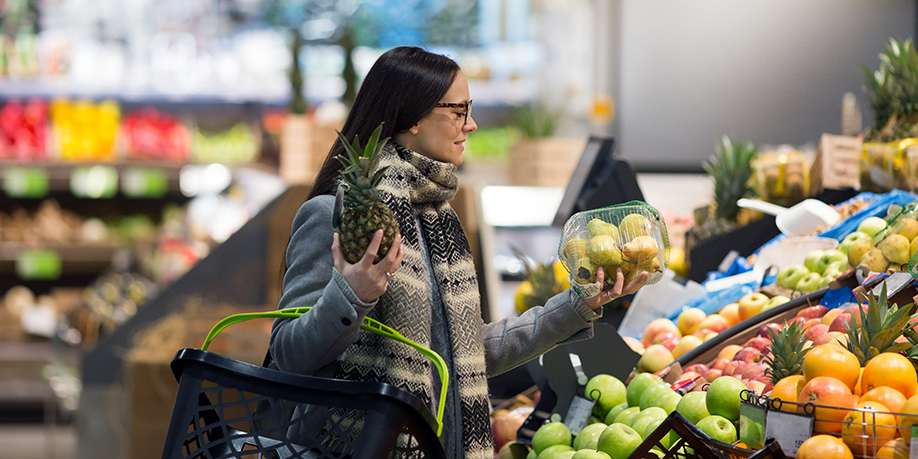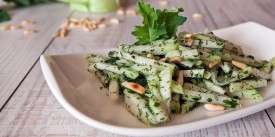
What fruits are the best for diabetics and what fruits should diabetics avoid?What fruits are the best for diabetics and what fruits should diabetics avoid?
  © Jevtic | Dreamstime.com Fruits are among the healthiest foods in your diet, even if you have diabetes. They’re an excellent source of vitamins, minerals, and fiber while satisfying your sweet tooth. The trick is to know which ones to add to your menu. While all fruits have carbohydrates – mostly from sugar and fiber – some have less sugar than others. To benefit from all the nutrition fruits have to offer, you need to know which fruits to include in your diet and which ones to avoid. Let’s have a look at some of the fruits you need to keep out of your diet or consume in small amounts. Figs It might seem obvious to stay away from those delicious fig cookies, but did you know that even fresh figs are high in sugar? 29 grams of sugar per cup of figs, to be precise. So, while they’re rich in copper and vitamin B6, it’s recommended you only have them occasionally.
Mangos If you’re looking for low sugar snacks to indulge your sweet tooth, this tasty tropical fruit is not the best option. One cup of mango has almost 70% of your daily vitamin C recommended intake, but it also has 23 grams of sugar per cup.
Tangerines They may be small, but with 20 grams of sugar per cup, there are better citrus fruits that will provide that much-needed vitamin C.
Cherries Their small size makes them perfect for snacking, as long as you keep the portions small. They also contain 20 grams of sugar per cup and are not as filling as other fruits with less sugar content.
Pineapples It’s not surprising pineapples are on the list of diabetes foods to avoid. You can smell the sugar just by cutting a piece. This fruit is rich in vitamin C, but with about 7 grams of carbs for a thin slice it’s another fruit you’ll want to eat only occasionally and in very small amounts — perhaps as a topping on a healthy breakfast.
Bananas Bananas have a reputation for being among the worst fruits for diabetics for being high in fructose and carbohydrates—29 grams of carbohydrates in one medium-sized banana. While there’s no need to avoid them completely, you do need to be mindful of your portions, make sure you only eat it fresh and not overripe. The sugar content increases as they ripe.
While these fruits are better be enjoyed only once in a while, there are others you can savor more often due to their lower sugar content and high amounts of fiber. Fiber slows down digestion, and in turn, delays carb and sugar absorption to keep your blood sugar stable. So, which fruits need to be on your shopping list? Let's have a look.
Berries There's nothing better than berries to give your breakfast or snack a flavorful boost of vitamins. They’re high in vitamin C, fiber, and antioxidants, and studies show they may help in improving the processing of glucose. Tomatoes Because they’re cooked as a vegetable, tomatoes are a great option to add more ‘fruit’ to your diet even if you don’t like most fruits or don’t crave sweets often. High in fiber and vitamin B and low in carbs, they’re perfect for most diabetic diets.
Apples A fresh, crunchy apple is a fantastic way to satisfy a sweet tooth even with a diabetic diet. With a log GI of 5 and full of fiber, vitamin C, apples are a nutritional powerhouse, especially if you don’t peel them. A lot of the vitamins and fiber in the apple are in the skin. Just make sure to wash it thoroughly before eating.
Grapes Want a boost of vitamin B6 in your diet? Try a serving of grapes. This delicious bite-sized treat is perfect to mix up your snack menu. Grapes add plenty of fiber and a quarter of your daily vitamin K needs with a low GI of 5.
Avocados Yes, avocado is a fruit, too. A fruit you can use as a sandwich spread, salad topping, in soups, or sushi rolls. They pack high amounts of healthy fats, potassium, and antioxidants with negligible sugar content.
Lemons Citrus fruits are the best-known source of vitamin C. While oranges and tangerines can be off-limits in a diabetic diet due to their high sugar content, lemons boast similar amounts of vitamin C and less sugar—5 grams per cup. While more difficult to each whole, their low sugar content means you can easily add a dash of lemon juice to your favorite recipe.
| |||||||||||||||||||||||||




























